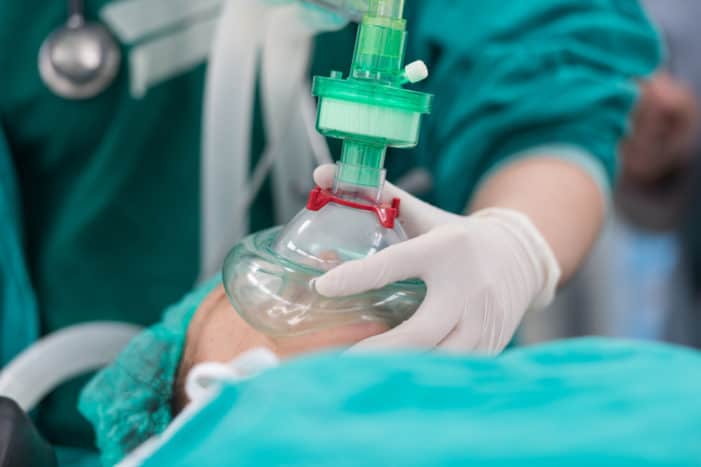Contents:
- Medical Video: How Anesthesia Affects Your Brain And Body
- What happens to the body under the influence of total anesthesia
- 1. The brain will "fall asleep"
- 2. It will be difficult to breathe if the stomach is not empty before surgery
- 3. You may not fully sleep
- 4. Blood pressure can go down if you estimate weight
- 5. Have side effects
Medical Video: How Anesthesia Affects Your Brain And Body
During a major operation, such as heart surgery or brain surgery, you will be totally sedated until you are unconscious. The goal is that you do not feel pain and can not move which might endanger the course of the procedure. You will just wake up when the surgery is finished. So, have you ever wondered, what actually happens when you are under the influence of total anesthesia?
What happens to the body under the influence of total anesthesia
1. The brain will "fall asleep"
As soon as you receive the total anesthesia, the brain will start to "die" so that you are completely unconscious as if you were sleeping. You think you only sleep for a while, but maybe the operation has taken a long time.
Jennifer Kollman, MD, a director of anesthesia from UC Health Memorial Hospital Central in Colorado, explained that the effects of anesthesia work directly on the cerebral cortex which is the center of thought and the brain stem area associated with self-awareness.
That's why your breathing, heart rate, and body reflexes are slower as soon as you are conscious because the brain is just starting to wake up from "sleeping". This blinding effect will disappear over time until the remaining drug in the body is completely exhausted.
2. It will be difficult to breathe if the stomach is not empty before surgery
Doctors generally recommend that you fast before surgery, starting from the previous 8 hours. This is specifically for keeping your general anesthetic working properly.
Because anesthesia will "turn off" the work of all the organs and nerves of the body for a while, the remaining food in the stomach may flow back into the lungs because of the stomach ring muscles that cannot hold the flow. In a fully conscious state, you can cough reflex to remove food that is "stray" into the airway. But when you are under general anesthesia, you don't even notice that there is food flowing back.
Food that flows into the airways and is trapped in the lungs can endanger your health.
3. You may not fully sleep
Reporting from the Mayo Clinic page, at least one to two people are still half conscious even though they have been given total anesthesia. How can? According to James D. Grant, MD, MBA, chair of the American Society of Anesthesiologists and chair of the anesthesiology department at Beaumont Hospital-Royal Oak, there are many reasons that underlie this phenomenon.
Maybe it's because the condition of the patient is unstable, or because the dose of the drug dose is lower than it should be so that the effect runs out faster. Even so, you might not be able to do anything if you wake up during surgery, especially to simply tell your doctor and medical team that you have been awakened.
Because the effect of muscle relaxation resulting from total anesthesia still makes it difficult for you to move and talk. This does not rule out the possibility of long-term effects, such as anxiety, sleep disorders, and nightmares. Even worse, it can have an impact on psychological problems similar to post traumatic stress disorder (PTSD).
4. Blood pressure can go down if you estimate weight
Before surgery, the doctor will measure the total dose of the anesthetic according to the results of your weight scales. Then you should give accurate information about your weight.
If the doctor mistakenly gives you an anesthetic dose, the possible effect is a decrease in blood pressure and an increase in body weight after surgery.
If you are not sure about your weight, there is no harm in weighing before giving information to the doctor.
5. Have side effects
Not much different from drugs in general, total anesthesia can also cause side effects. However, this does not automatically apply to everyone. The side effects also vary, including slow to wake up, shivering, and postoperative nausea and headaches.
Side effects can occur due to the workings of drugs that affect the brain and organs of your body. But not to worry, this condition generally will only last for several hours after surgery. Make sure you always discuss whatever problems and complaints you feel with the doctor who is handling you.

















